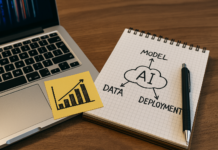Artificial Intelligence is fundamentally transforming the global economy and redefining how innovation occurs within entrepreneurial ecosystems. As the technology continues to evolve, its influence on the future of startups becomes increasingly profound. Startups, often characterized by agility and risk-taking, have embraced Artificial Intelligence not only as a tool for efficiency but also as a foundation for new business models. By leveraging algorithms, automation, and data-driven insights, startups can operate with precision, predict market behavior, and deliver personalized products and services faster than ever before.
Artificial Intelligence represents a paradigm shift similar to the industrial revolution, but its pace and scale are far greater. Startups that integrate AI at an early stage gain access to competitive advantages once available only to large corporations. With machine learning, predictive analytics, and natural language processing, they can analyze trends, forecast demand, and automate key operations, allowing them to make smarter decisions with limited resources. In this sense, Artificial Intelligence has democratized access to innovation and made high-tech entrepreneurship more inclusive.
Artificial Intelligence as a Catalyst for Startup Transformation
Artificial Intelligence is a driving force behind the structural transformation of startups worldwide. It reshapes how entrepreneurs think about opportunity, growth, and risk. In the traditional business environment, founders relied heavily on experience and intuition to make strategic decisions. Today, AI-driven analytics allows them to base those decisions on measurable data and pattern recognition. This shift from instinctive to evidence-based decision-making reduces uncertainty and accelerates success.
The influence of Artificial Intelligence on startups extends to every operational layer. From automating administrative processes to optimizing product development, AI enhances efficiency across departments. Startups are using AI-powered tools to analyze customer feedback, monitor financial performance, and identify growth opportunities. These applications reduce human error and free founders to focus on creativity and long-term strategy. As a result, AI adoption has become a key differentiator between startups that scale successfully and those that stagnate.
Artificial Intelligence also redefines investor expectations. Venture capitalists now look for startups that integrate AI in their core models because such companies demonstrate adaptability and scalability. This preference has led to the rise of AI-focused accelerators and venture studios that specialize in nurturing data-driven startups. Startups that utilize AI effectively are seen as having stronger long-term potential due to their ability to automate growth and reduce operational inefficiencies.
Enhancing Innovation and Product Development through AI
The integration of Artificial Intelligence has revolutionized how startups innovate. In the past, innovation cycles were slow and resource-intensive, often requiring years of research and testing. With AI, startups can simulate product performance, model consumer behavior, and iterate prototypes within weeks or even days. Machine learning models analyze customer interactions, enabling businesses to develop features that align with real user needs. This dynamic process not only improves product quality but also strengthens market fit.
Artificial Intelligence plays a vital role in personalizing user experiences. In industries such as e-commerce, healthcare, and education, startups use AI to deliver tailored solutions based on individual preferences. Recommendation systems, predictive diagnostics, and adaptive learning platforms illustrate how AI personalizes the value proposition. These innovations help startups attract loyal customers and build strong brand identities in competitive markets.
Furthermore, Artificial Intelligence assists startups in managing complex supply chains and logistics. Predictive algorithms anticipate demand fluctuations, while optimization tools allocate resources efficiently. By combining automation with intelligent analytics, startups can lower costs, reduce waste, and respond quickly to market changes. This level of operational agility is what distinguishes AI-driven startups from traditional small enterprises.
Decision-Making and Strategic Planning with Artificial Intelligence
Sound decision-making is one of the most critical aspects of startup success, and Artificial Intelligence enhances this process significantly. Startups operate in environments filled with uncertainty, where every strategic choice—whether it involves funding, marketing, or hiring—can shape their future trajectory. AI-based systems analyze real-time data to support these decisions. Predictive analytics tools forecast market demand, assess customer retention, and identify emerging trends.
By utilizing Artificial Intelligence, startups can optimize pricing models, evaluate competitive landscapes, and simulate potential outcomes of strategic moves. This predictive capability reduces guesswork and enables leaders to make decisions based on facts rather than assumptions. For example, fintech startups use AI to assess credit risk and detect fraud, while marketing platforms apply AI to measure campaign performance and audience engagement. The use of intelligent systems ensures that startups can adapt quickly and allocate their resources effectively.
Artificial Intelligence also influences internal management. AI-based human resource platforms help startups identify the right candidates, predict employee performance, and improve retention. By analyzing behavioral data, these systems detect patterns that indicate motivation and cultural fit, helping founders build cohesive teams. In this way, Artificial Intelligence strengthens not just external strategies but also internal organizational development.
Artificial Intelligence as an Educational and Learning Tool for Founders
Beyond its technical applications, Artificial Intelligence provides immense educational value for startup founders and teams. Understanding AI fundamentals allows entrepreneurs to make informed decisions about how to incorporate the technology effectively and ethically. Many startup incubators now include AI training programs that teach non-technical founders how to leverage automation and analytics tools to enhance their products and strategies.
Learning about AI also fosters a mindset of continuous improvement. Founders who understand the principles behind AI systems tend to adopt a data-driven approach to experimentation. They use insights generated by machine learning algorithms to refine their business models, marketing campaigns, and customer experiences. This learning cycle mirrors the lean startup methodology, where progress is achieved through iterative testing and feedback loops.
Entrepreneurs seeking structured knowledge can explore educational materials available through Startupik Insights. This platform provides resources on AI implementation, digital transformation, and innovation management tailored for startups. By connecting theoretical understanding with practical application, founders can make more strategic decisions about when and how to use Artificial Intelligence within their ventures.
Building Competitive Advantage through Artificial Intelligence
One of the defining outcomes of AI integration is the creation of sustainable competitive advantage. Artificial Intelligence allows startups to differentiate themselves through speed, accuracy, and personalization. Unlike traditional startups that depend heavily on manual processes, AI-driven businesses can operate 24 hours a day, adapting dynamically to market changes. Predictive systems give startups the ability to foresee shifts in customer demand and adjust their strategies proactively.
AI also enables startups to scale more efficiently. Once an intelligent system is deployed, its performance improves with continued data input. This scalability means that as startups grow, their AI infrastructure becomes even more valuable, reinforcing their market position. Artificial Intelligence not only improves current performance but also ensures long-term resilience by providing the agility to evolve in response to technological trends.
The strategic use of AI creates a cycle of self-optimization. Startups gather data, use it to train models, and then apply insights to refine operations and products. This feedback loop results in continuous improvement, an essential element in staying ahead of competition. Artificial Intelligence thus transforms startups into intelligent organizations that learn and adapt faster than traditional businesses.
Challenges and Ethical Considerations of Artificial Intelligence in Startups
While Artificial Intelligence provides startups with transformative opportunities, it also introduces significant challenges that require careful management. One of the most pressing concerns involves data quality and availability. Artificial Intelligence relies heavily on large volumes of data to function accurately, yet many startups struggle to access high-quality, unbiased, and diverse datasets. Poor data quality can result in inaccurate models, ethical issues, and unreliable business predictions. Startups must therefore prioritize strong data governance and transparency from the earliest stages of their development.
Another challenge is the financial and technical cost of integrating Artificial Intelligence into business operations. Building AI infrastructure requires expertise in machine learning, data engineering, and software architecture—skills that are often expensive or difficult to find. Many startups operate with limited budgets and cannot afford a full-scale AI research team. Consequently, they must adopt cost-effective approaches, such as using cloud-based AI platforms or open-source frameworks, to stay competitive.
Ethical considerations are equally crucial. Artificial Intelligence in startups raises questions about data privacy, algorithmic fairness, and accountability. When AI systems make automated decisions—such as approving loans, recommending candidates, or predicting customer behavior—they must do so transparently and without bias. Startups that fail to implement responsible AI practices risk damaging their reputation and losing public trust. Developing ethical AI frameworks and ensuring compliance with data protection laws are essential steps for maintaining integrity and long-term growth.
Financial and Operational Risks of Using Artificial Intelligence
In addition to ethical challenges, startups face financial and operational risks when adopting Artificial Intelligence. The initial investment in AI tools, infrastructure, and skilled personnel can be substantial. Startups must carefully evaluate the return on investment and avoid implementing AI solutions merely for branding purposes. Artificial Intelligence should solve real problems and create measurable value.
Operational risks emerge from overreliance on automation. Although AI improves efficiency, excessive dependence may reduce flexibility and human oversight. Startups need to maintain a balance between automation and creativity. Human intuition remains vital in interpreting data and guiding innovation. Artificial Intelligence should be seen as a strategic partner that augments human capability rather than replacing it.
Another growing concern is cybersecurity. AI systems process massive amounts of sensitive information, making startups potential targets for cyberattacks. Hackers may attempt to manipulate algorithms or exploit vulnerabilities in data pipelines. To mitigate these risks, startups must invest in advanced encryption, continuous monitoring, and secure data storage. Cybersecurity is not just a technical requirement but a core component of trust and brand credibility.
Legal and Policy Implications of Artificial Intelligence
The legal landscape surrounding Artificial Intelligence is evolving rapidly. Governments and international organizations are developing new regulations to address the ethical and social impacts of AI technologies. For startups, navigating these regulations can be complex. Non-compliance may result in legal penalties, reputational damage, or restrictions on market access. Founders must stay informed about frameworks such as the European Union’s AI Act, data protection laws, and intellectual property policies related to algorithmic innovations.
Intellectual property issues are particularly relevant. When Artificial Intelligence generates original content—such as designs, code, or text—it becomes unclear who owns the resulting intellectual property. Startups must establish legal agreements that define ownership rights for AI-generated assets. Consulting legal experts early helps prevent disputes and ensures that the company’s innovations remain protected.
Startups can gain valuable insights on these legal and regulatory challenges by visiting Startupik Insights, which offers guidance on compliance, governance, and ethical AI deployment. Understanding these aspects not only minimizes risks but also strengthens credibility with investors and customers.
Opportunities Emerging from Artificial Intelligence in Startups
Despite the challenges, Artificial Intelligence continues to create immense opportunities for startups across industries. One major opportunity lies in the development of data-driven business models. AI enables startups to analyze customer behavior, predict demand, and identify emerging market trends. These capabilities empower founders to create products that meet evolving consumer needs more precisely.
Artificial Intelligence also promotes efficiency and sustainability. Startups use AI algorithms to optimize logistics, minimize waste, and manage energy consumption. In sectors such as agriculture, transportation, and manufacturing, AI-driven insights help improve productivity while reducing environmental impact. This alignment between technology and sustainability gives startups a competitive edge in an increasingly eco-conscious market.
Moreover, Artificial Intelligence enables global scalability. With cloud computing and machine learning APIs, startups can expand internationally without major infrastructure investments. AI-powered translation, localization, and analytics tools allow startups to adapt their offerings to diverse cultural and linguistic contexts. As a result, even small startups can access global markets with agility and precision.
Human-AI Collaboration and the Future of Work
The collaboration between humans and Artificial Intelligence represents a fundamental shift in how startups operate. Instead of viewing AI as a replacement for human labor, successful startups integrate it as an augmentation tool that enhances creativity, accuracy, and problem-solving. This synergy creates a hybrid workforce in which humans focus on strategy and innovation, while AI handles repetitive, data-intensive tasks.
In practice, this collaboration improves efficiency across all departments. In marketing, AI assists in identifying target audiences and predicting engagement, while humans design compelling narratives that connect emotionally with users. In product development, AI analyzes usage data and recommends design improvements, but human designers make the final decisions based on ethics and aesthetics. This coexistence between human insight and machine intelligence defines the future of startup productivity.
Furthermore, Artificial Intelligence encourages new forms of leadership and management. Founders who understand AI principles can make informed, data-driven decisions. They lead teams through a combination of technical awareness and emotional intelligence. This balanced approach fosters innovation, transparency, and resilience. The leaders of tomorrow will be those who can interpret data while maintaining a human-centered perspective.
Building a Sustainable Artificial Intelligence Strategy
For Artificial Intelligence to generate lasting value, startups must develop sustainable AI strategies that align with their business goals. The foundation of such a strategy is clarity of purpose. AI should not be implemented simply to follow trends but to solve specific business challenges. Founders should identify key areas where AI can deliver measurable improvements, such as product personalization, operational optimization, or customer engagement.
Infrastructure scalability is equally important. Startups should design flexible AI architectures that can grow with the company. Cloud-based solutions and modular systems allow startups to expand capabilities without large upfront costs. Continuous model training ensures that AI systems remain accurate and relevant as data patterns evolve.
Education also plays a vital role in sustainability. Startups that invest in AI literacy among employees empower their teams to make informed decisions about data usage and automation. By building a culture of learning and responsibility, startups ensure that Artificial Intelligence remains a positive force for innovation and social good.
The Future Landscape of Artificial Intelligence and Startups
The relationship between Artificial Intelligence and startups will continue to evolve, shaping the next generation of entrepreneurship. Future startups will not merely use AI as a tool but will design entirely AI-native business models. These companies will rely on self-learning systems that adapt continuously to changing environments.
Artificial Intelligence will also redefine how startups attract investment. Investors are increasingly focused on ethical and explainable AI. Startups that demonstrate transparency and responsible data practices will gain greater trust and long-term partnerships. Ethical AI is no longer optional it is a competitive necessity.
In addition, Artificial Intelligence will reshape the customer experience. Predictive analytics, conversational AI, and personalized recommendation systems will become standard features in startup products. As consumer expectations evolve, startups will differentiate themselves not only by innovation but by how intelligently and ethically they use AI technologies.
Final Conclusion
Artificial Intelligence has become the cornerstone of modern entrepreneurship. It transforms how startups innovate, scale, and compete in a data-driven economy. By harnessing AI’s power, startups can achieve greater precision, speed, and adaptability than ever before. However, success depends on how responsibly and strategically this technology is implemented.
Startups must recognize that Artificial Intelligence is not a one-time investment but a continuous journey of learning, improvement, and ethical awareness. Those that integrate AI thoughtfully balancing automation with human creativity will lead the future of innovation. Artificial Intelligence represents more than a technological shift; it marks the beginning of a new era where intelligent systems and visionary entrepreneurs work together to shape a smarter, more sustainable world.
For ongoing insights, strategies, and research about implementing Artificial Intelligence effectively, entrepreneurs can explore Startupik Insights. This resource offers practical guidance for founders seeking to understand how AI can empower startups to achieve long-term growth and global impact.














































